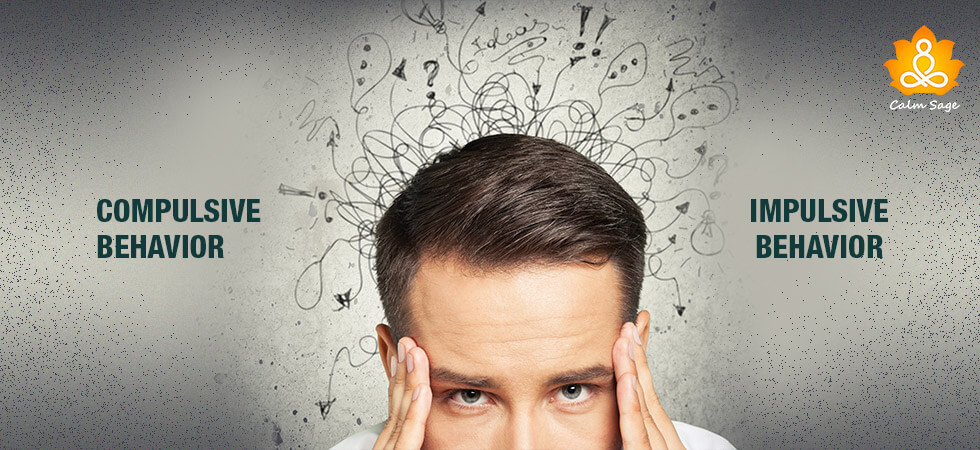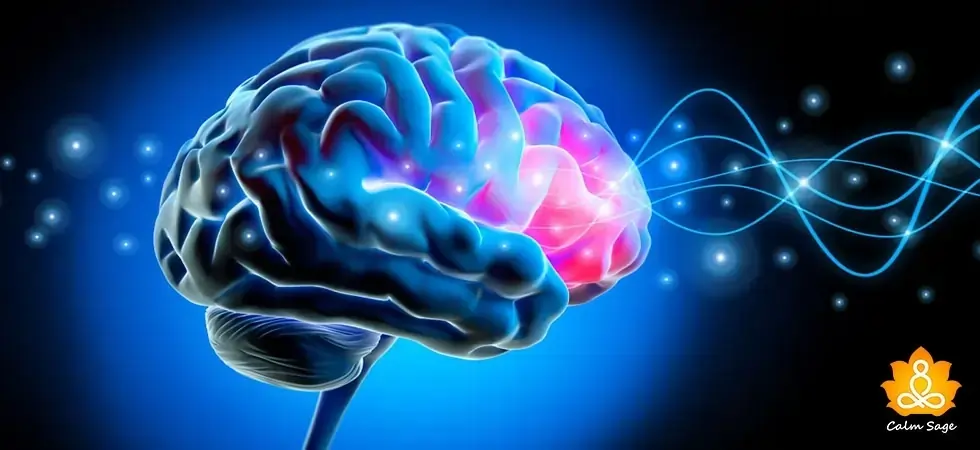Compulsive Behavior vs. Impulsive Behavior: The Differences Between Them (With Examples)

Many people confuse these two terms – compulsive behavior and impulsive behavior – to be similar but when you look deeper, they are two different behavior patterns that may be associated with different mental health disorders.
Compulsivity and impulsivity are unique and have equally unique symptoms that you can see in conditions including compulsive disorders and impulse control disorder.
Before we talk more about the signs of compulsive vs impulsive, let’s take a look at the definitions and examples of these two distinct behavioral patterns.
What Is Compulsive Behavior?
The Oxford Dictionary defines compulsive behavior as “an irresistible urge to behave certainly, especially against your consciousness” Compulsivity is when you perform a task repeatedly to serve a purpose. However, the purpose may not be related to the behavior, directly. Apart from this, compulsive behavior may make you act in ways even when the result may be unpleasant.
Compulsive behavior is our unconscious or conscious actions that are usually done to reduce emotional, physical, or somatic distress.
Some compulsive behavior signs can include:
- Persistent thoughts
- Intrusive thoughts or images
- Excessive doubts
- Perfectionism
- Fear of harming others
What Is Impulsive Behavior?
As defined in the Oxford dictionary, impulsive behavior is “the sudden and strong urge to act on a desire.” Impulsivity is when you do something without a thought. You act first and think about the consequences of your impulsive actions way later when it’s too late to retract. Impulsive behavior, like compulsive, may cause results that may not be pleasant.
Impulsive behaviors are spontaneous actions that we don’t think about clearly. Believe it or not, when it comes to impulsive vs compulsive, we are more likely to act on impulse whereas not all people may be prone to compulsive actions.
Some signs of impulsive behavior can include:
- Overindulging in unnecessary things
- Destruction of property
- Frequent emotional outbursts
- Abrupt start overs
- Oversharing
- Physical violence
- Self-harm
If you or your loved one is struggling with self-harm or suicidal thoughts, then you can connect with these helpline numbers:
- National Suicide Prevention Lifeline: 1800-273-8255
- Crisis Text Line: text HOME to 741741
- TrevorLifeline: 866-488-7386
- iCall: +91-9152-987-821
- AASRA: +91-9820-466-726
- Vandrevala Foundation: +91-9999-666-555
What Causes Such Behaviors?
Many factors may cause compulsive behavior. While these behaviors can occur on their own, sometimes, they can be symptoms of other mental health conditions such as;
- Obsessive-compulsive disorder (OCD)
- Body dysmorphic disorder
- Hoarding disorder
- Hair-pulling disorder (Trichotillomania)
- Skin-picking disorder (Dermatillomania)
- Medically-induced obsessive-compulsive disorder
- Compulsive disorders
Mental health conditions that may cause impulsive behaviors may include:
- Tourette syndrome
- Oppositional defiant disorder (ODD)
- ADHD
- Autism spectrum disorder
- Tic disorders
- Intermittent explosive disorder (IED)
- Conduct disorder
- Pyromania
- Kleptomania
Other mental health disorders that may cause both – compulsive and impulsive behavior – can include:
- Anxiety disorders
- Bipolar disorder
- Borderline personality disorder (BPD)
- Impulse-control disorder
- Eating disorders
- Substance abuse disorder (SUD)
Let’s Look At Some Examples
1. Compulsive
It can be considered compulsive behavior when you:
- Constantly wash your hands
- Open and close doors repeatedly
- Repeat certain phrases or numbers in your mind
- Count or recount things like exists, money, numbers, etc.
- Replay a comment you made hours ago
- Turn light switches on or off repeatedly
- Twirl your hair periodically
- Crack your knuckles
Did you know that according to a 2020 study, gambling is also considered a compulsive behavior?
2. Impulsive
It can be considered impulsive behavior when you:
- Interrupt someone mid-sentence
- Leave your house without the phone, wallet, keys, etc.
- Hug someone without their consent
- Blurt out embarrassing things
- Purchase unnecessary things
How To Cope With Them?
Compulsivity and impulsivity can be managed. Here are a few ways to help you cope with impulsive or compulsive behaviors:
1. Therapy:
With a professional’s help in therapy, you can understand the source or cause of your impulsive or compulsive actions and learn how to cope with such behaviors in a controlled, safe, and non-judgmental environment. Of course, the therapy can be personalized according to your actions, thoughts, and feelings.
2. Medications:
Medications often prescribed to help people with OCD can be prescribed to help you with your impulsive and compulsive behaviors. Medications can be effective in reducing impulsive behaviors in people living with ADHD or other related disorders.
3. Support System:
Seeking help from your support system can also help in managing your impulsive and compulsive behaviors. Ask your trusted friends or family members if they are willing to be your support system while you’re learning new coping skills. You can also ask them to keep a check on your actions and tell you when they feel you’re indulging in compulsivity or impulsivity.
Wrap Up
When we talk about compulsive vs impulsive behavior, there may be some similarities but these two conditions are not similar at all. Compulsive behavior is a pre-planned behavior whereas impulsive behavior is a spontaneous behavior. Both of them, however, may result in unfavorable consequences.
If you feel that you can relate to compulsive behavior or impulsive behavior, then it is recommended that you speak to a professional mental health counselor for a diagnosis.
I hope this article helped you understand impulsive vs compulsive behavior, their signs, causes, and how to manage them. For more, you can write to us at info@calmsage.com or DM us on social media.
You can also share your thoughts in the comments section below. Give us a thumbs-up and share this article with your friends and family.
Take Care!




















